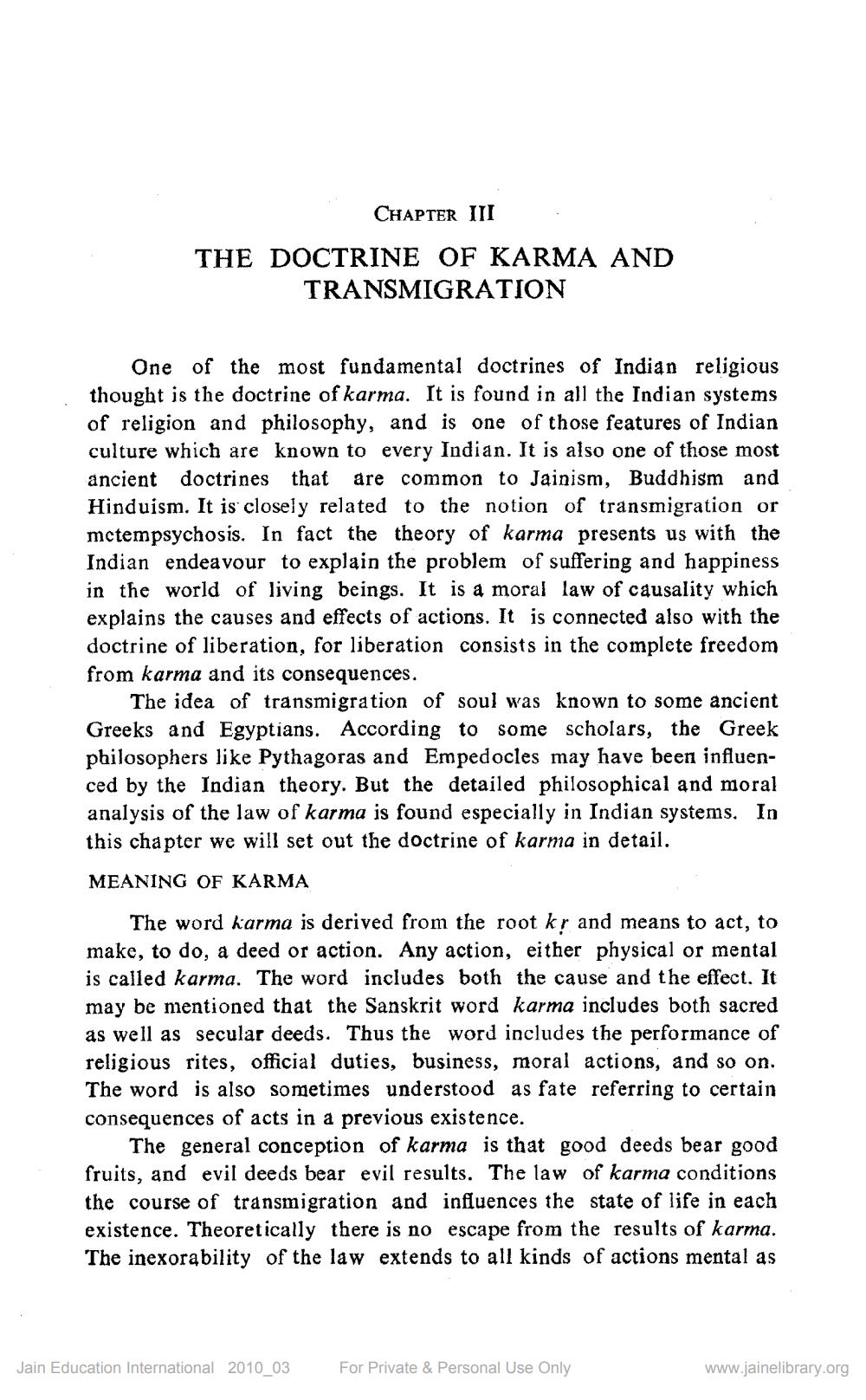________________
CHAPTER III
THE DOCTRINE OF KARMA AND TRANSMIGRATION
One of the most fundamental doctrines of Indian religious thought is the doctrine of karma. It is found in all the Indian systems of religion and philosophy, and is one of those features of Indian culture which are known to every Indian. It is also one of those most ancient doctrines that are common to Jainism, Buddhism and Hinduism. It is closely related to the notion of transmigration or metempsychosis. In fact the theory of karma presents us with the Indian endeavour to explain the problem of suffering and happiness in the world of living beings. It is a moral law of causality which explains the causes and effects of actions. It is connected also with the doctrine of liberation, for liberation consists in the complete freedom from karma and its consequences.
The idea of transmigration of soul was known to some ancient Greeks and Egyptians. According to some scholars, the Greek philosophers like Pythagoras and Empedocles may have been influenced by the Indian theory. But the detailed philosophical and moral analysis of the law of karma is found especially in Indian systems. In this chapter we will set out the doctrine of karma in detail.
MEANING OF KARMA
The word karma is derived from the root kr and means to act, to make, to do, a deed or action. Any action, either physical or mental is called karma. The word includes both the cause and the effect. It may be mentioned that the Sanskrit word karma includes both sacred as well as secular deeds. Thus the word includes the performance of religious rites, official duties, business, moral actions, and so on. The word is also sometimes understood as fate referring to certain consequences of acts in a previous existence.
The general conception of karma is that good deeds bear good fruits, and evil deeds bear evil results. The law of karma conditions the course of transmigration and influences the state of life in each existence. Theoretically there is no escape from the results of karma. The inexorability of the law extends to all kinds of actions mental as
Jain Education International 2010_03
For Private & Personal Use Only
www.jainelibrary.org




